Reported by Leslie Thatcher, KPCW
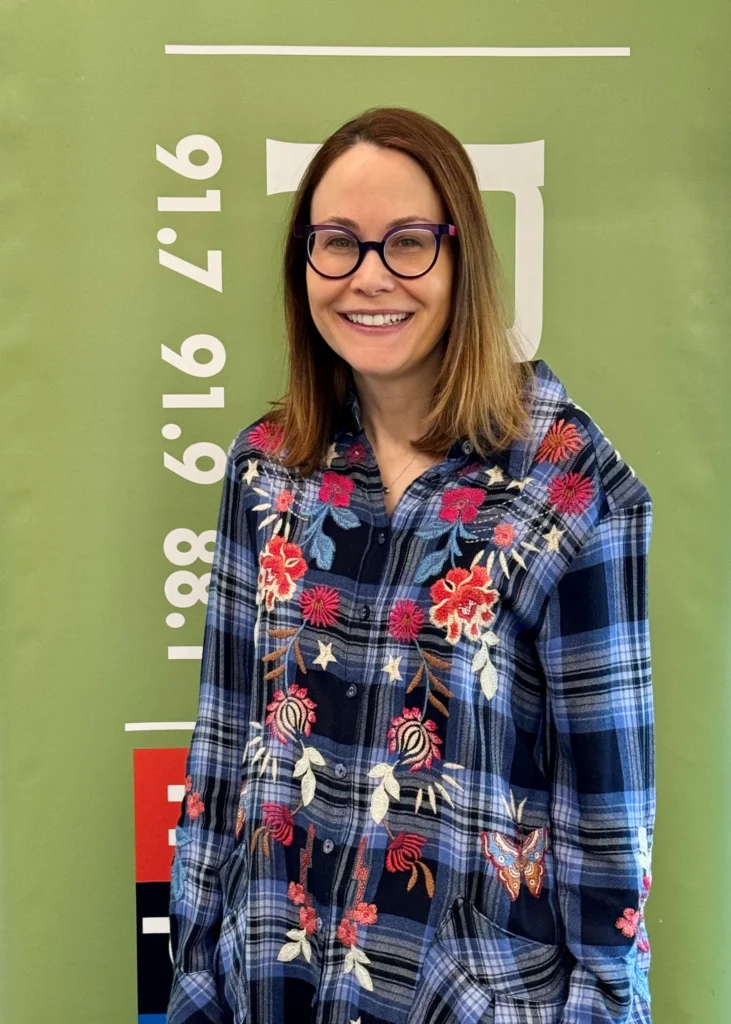
People’s Health Clinic CEO Mairi Leining talks about programs the clinic offers for uninsured residents in Summit and Wasatch counties.
Reported by Leslie Thatcher, KPCW

People’s Health Clinic CEO Mairi Leining talks about programs the clinic offers for uninsured residents in Summit and Wasatch counties.
Reported by Leslie Thatcher, KPCW

The announcement was made on Wednesday, June 10, at the annual grant celebration at Park City Mountain’s Red Pine Lodge.
The more than 2,000 members of Women’s Giving Fund vote every year to decide which of three local organizations should receive the annual high-impact grant.
The fund started in 2014 when 1,000 women donated $1,000 each, raising an endowment of $1 million. This year’s $75,000 grant to the People’s Health Clinic was the largest ever awarded. People’s Health Clinic provides free health care to the uninsured in Summit and Wasatch counties.
When accepting the award, Women’s Health Director Dr. Tonja Bodnar stood next to the mom-to-be who was featured in the finalist video, members saw before casting their votes. They were also joined on stage with the patient’s newborn daughter Ataña.
“I have delivered 1000s of babies I’ve performed 1000s of surgeries,” Dr. Bodar said. “I don’t quiver. This is quiver-worthy. You are incredible. Thank you.”
People’s Health Clinic CEO Mairi Leining says the money will be used to elevate the women’s health program.
“Right now we’ve got Tonia Bodnar working at max capacity along with her other women’s health practitioners,” Leining said. “Where I feel like we can bring the program to another level is by adding a community health worker who can really do attentive, detailed follow-up with our patients. So, when Dr. Bodnar wraps up with the patient, the community health worker would then go in and make sure that individual has everything they need to succeed.”
Reported by Leslie Thatcher, KPCW
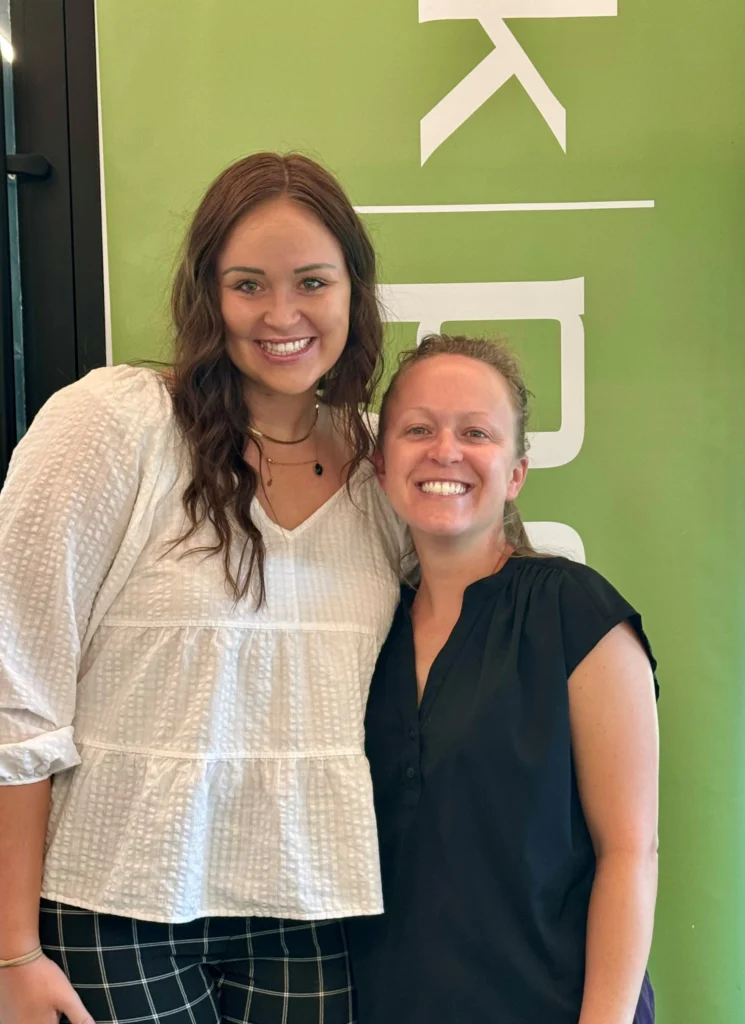
People’s Health Clinic Assistant Medical Director Rachelle Flinn and Diabetes Program Director MaeLin Sorensen discuss their long-standing connection to the organization.
KPCW
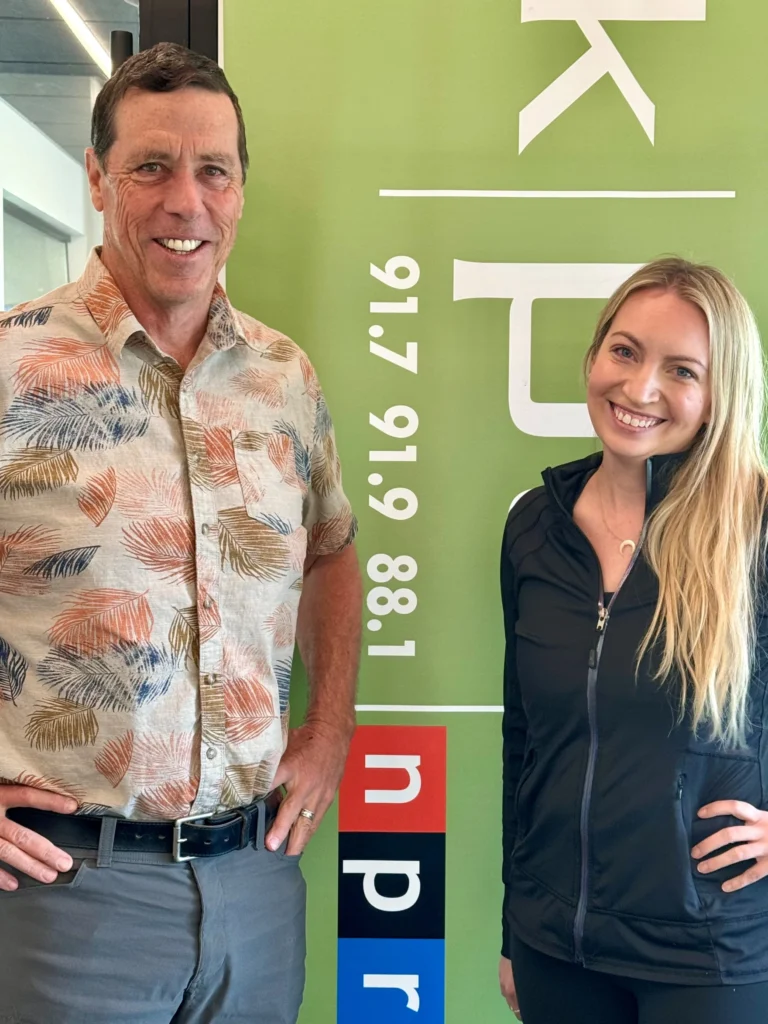
People’s Health Clinic Founder and Board Member, Dr. John Hanrahan and Chief Development Officer, Jenn Marley, discuss the clinic’s 25th anniversary and announce this year’s Walk and Wine event.
ParkRecord
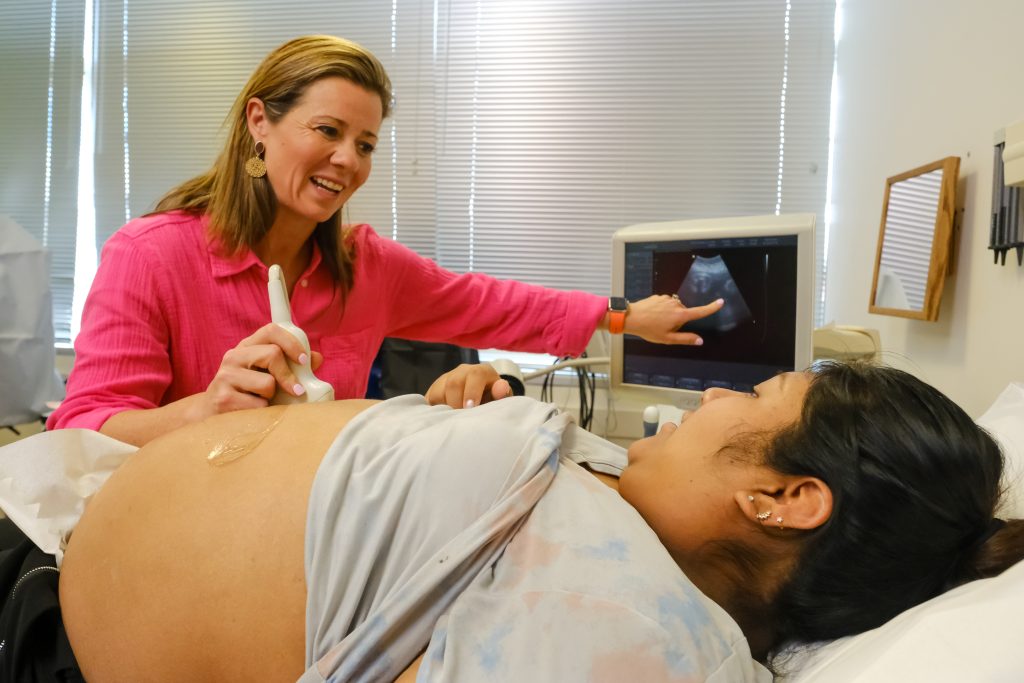
Though the dream of free, quality health care is unlikely to ever become reality on a national scale in the U.S., it’s already so for uninsured residents of Summit and Wasatch Counties.
Over the past 25 years, the People’s Health Clinic has brought the best in health care to individuals who make up the backbone of the Wasatch Back. All it takes is proof of uninsured status and proof of residency to be seen by their team of highly trained medical personnel.
“We don’t actually look at what people’s income levels are,” said Mairi Leining, the clinic’s chief executive officer. “That being said, I mean, wealthy people don’t go to a free clinic, so 98% of our patients live below the federal poverty level.”
This has been the case since its founding in 1999, created in response to a problem that still exists today.
John Hanrahan, a doctor and one of the nonprofit’s founders, said a local family doctor was seeing a lot of Latino patients who didn’t have health care.
“So he went to Father Bob Bussen at St. Mary’s Catholic Church to say, ‘Hey, I’ve seen a lot of your parishioners who don’t have health insurance. Is there something that can be done about that to help them?’” Hanrahan said.
They decided to see if access to free health care would be received by the community and held a health fair at Park City High School to check blood pressure and glucose.
“We had about 700 people show up, which was a massive number for that sort of event,” Hanrahan said. “So that kind of convinced everybody that, yeah, there really was a real need and a big need, and we should move ahead.”
First, they bought a mobile trailer, which had one exam room and one entry room where they could draw blood.
Dalia Gonzalez, at the time a 9-year-old undocumented Park City resident, remembered stepping onto that trailer in its early days. Though her younger siblings were born in the United States after her parents moved from Mexico when she was an infant and had access to health care growing up, she didn’t have that same luxury.
“At the time, we were undocumented, so therefore my parents didn’t have any health insurance. And my parents would take me for my pediatric checkups, and if I was sick, they would take me to the People’s Health Clinic, and I would get my care there,” Gonzalez said.
The People’s Health Clinic was just one of the resources resulting from a generous Park City community, said Gonzalez, who remembered also receiving the opportunity to ski, thanks to a local nonprofit.
“For me it was always like, ‘Wow, I live in such a giving community. I want one day to be able to give back,’” she said.
In high school, Gonzalez began volunteering at the clinic and pursued a path in the medical field. After graduating from the University of Utah, she got a job with Planned Parenthood in Park City.
“The service that they provided in Park City was access to birth control, access to women’s health care. And unfortunately, Planned Parenthood had to leave the Park City community because I remember that the lease went too high,” she said. “That’s when People’s Health Clinic took the plan of, ‘OK, if our partner can’t stay, we need to do something to be able to provide this service.’”
Gonzalez has come full circle, now working as the operations director at the People’s Health Clinic, supporting the medical staff behind the scenes, ensuring they’re fully staffed with the right equipment they need each day.
Since Gonzalez’ and many others’ experience with the clinic 25 years ago, plenty has changed.
KPCW –
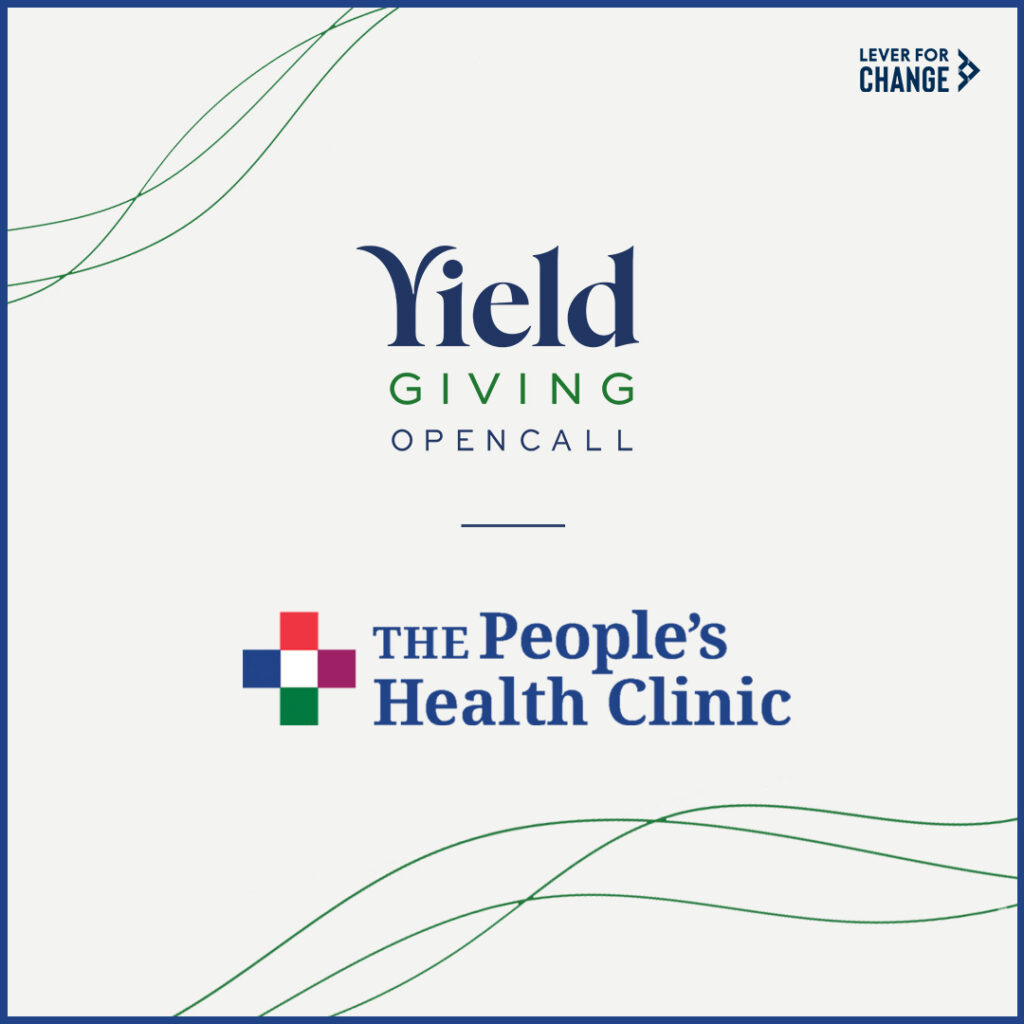
The People’s Health Clinic has received $1 million from the Yield Giving fund – one of 360 nonprofits that responded to an open call for applications.
Billionaire philanthropist Mackenzie Scott announced Tuesday that she is handing out $640 million, more than twice the amount she had initially pledged to give away this year. According to her Yield Giving website, the “open call” asked for applications from nonprofits that are community-led with missions “to advance the voices and opportunities of individuals and families of meager or modest means.” Only nonprofits with annual budgets between $1 million and $5 million were eligible to apply.
The People’s Health Clinic was one of 82 organizations that received $1 million; 279 others were awarded $2 million.
CEO Mairi Leining is grateful for the funding that will be used to extend the clinic’s evening hours starting this summer.
“Our patient population has just extremely demanding jobs with restrictive work hours,” Leining said. “And based on a patient survey we conducted last summer, what they really want to be able to do is come in and see us after work in the evening.”
So why People’s Health Clinic? Leining says the staff from Yield Giving were very complimentary with their feedback.
“They liked our innovative programming, including how we’ve approached the care of patients with diabetes,” she said. “How we’ve addressed latent tuberculosis in town, something that the health department hasn’t had funding for. The fact that we’ve started a food pharmacy in collaboration with other nonprofit partners in town. And they also commented on how well we take care of our staff.”
The clinic is open Tuesdays from 8 a.m. to 8 p.m. Leining would like to add the extended hours on Wednesdays and Thursdays as well.
She is often surprised by the number of people who don’t know Park City has a free health clinic which she believes is part of the critical infrastructure to make Park City run.
“I want to make sure that our community understands we take care of people who support the tourism industry,” she said. “Park City is famous for tourism and we talk about sustainability and tourism. But for tourism to be sustainable, we have to have the staff to support this industry. And the staff are largely in employment situations where they’re not receiving benefits and without us, they would not have health care.”
While the gift is a significant step forward, Leining knows there is still much work to be done. The uninsured population in the Park City area, she says, continues to grow and underscores the ongoing need for sustainable funding to expand the clinic’s services.
The Associated Press reports Mackenzie Scott has given away $16.5 billion from the fortune she came into after divorcing Amazon founder Jeff Bezos.
CONTACT US:
ph 435.333.1850
fax 435.333.1899
People’s Health Clinic
650 Round Valley Drive
PO Box 681558
Park City, Utah 84060
CLINIC HOURS:
Mon: 8am – 8pm
Tues: 8am – 8pm
Wed: 8am – 8pm
Thur: 8am – 5pm
Fri: 8am – 1pm
BOARD PORTAL
PRIVACY POLICY
SECURITY POLICY
WEBSITE BY: simplydesign.com
Emotional Health Relief Hotline:
833.442.2211
Caregivers available 10am – 10pm
7-days a week
